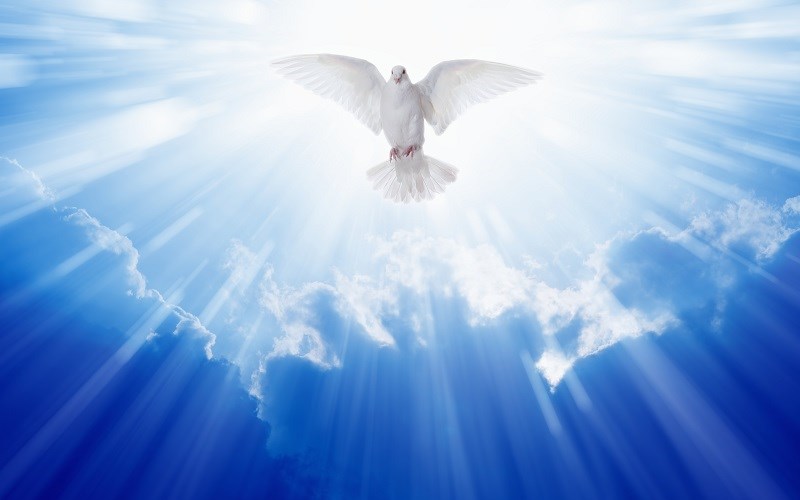

Jesus’s Baptism
Matthew 3:16 says,“And when Jesus had been baptized, just as he came up from the water, suddenly the heavens were opened to him and he saw the Spirit of God descending like a dove and alighting on him.” The Holy Spirit’s descent upon Jesus as he’s coming up out of the water demonstrates that Jesus’s resurrection would launch the new creation. This moment in Jesus’s baptism foreshadows that He would put to death the old age of the flesh (i.e., the sin nature) that is characterized by slavery to sin and usher in a new age of the Spirit characterized by righteous, God-honoring life. Jesus is the new Adam in this iteration of the creation story. We know this because the Holy Spirit shows up in the form of a dove.
The Flood as Re-Creation
The dove in the story of Jesus’s baptism echoes the story of Noah’s Ark and the flood (Gen 6–10). The story of the flood is about re-creation; it is about God judging the creation for its sin by destroying it and then creating it all over again. We see this re-creation aspect of the story through the way in which God pours out his wrath—a flood. But why did God choose to judge the earth through a flood? Why was water the means of wrath? Why not meteors, or a cataclysmic earthquake, or a plague? The answer is because he was returning things to their pre-creation state: watery chaos and darkness.1 Genesis 1:2 says that before God created light on the first day, “[t]he earth was formless and empty, and darkness covered the deep waters. And the Spirit of God was hovering over the surface of the waters.” In other words, before God began to create, there was watery chaos and darkness. In the story of Noah and the flood, God is returning things back to the way they were before he spoke light and life into the creation. In sum, the story of the flood is not just about judgment, it is about re-creation. In the flood, God is rebooting the creation project, and Noah will be the new Adam.
Genesis 8:1 further attests to this re-creation purpose with, “But God remembered Noah and all the wild animals and all the domestic animals that were with him in the ark. And God made a wind blow over the earth, and the waters subsided.” This is creation language telescopes Genesis 1:1–2 into this text where the Spirit of God hovers over the deep.2 Furthermore, once the floodwaters recede, God gives Noah and his family the same command that God gave Adam and Eve in the garden:
God blessed Noah and his sons, and said to them, “Be fruitful and multiply, and fill the earth. The fear and dread of you shall rest on every animal of the earth, and on every bird of the air, on everything that creeps on the ground, and on all the fish of the sea; into your hand they are delivered (Gen. 9:1–2).
Before the waters reside and Noah comes out of the ark, however, Noah sends the raven out and then the dove twice, returning only the first time. The fact that the dove did not return to Noah the second time means that it found a place within the new creation to reside.3 The space that God had formed was ready to be filled.
This image speaks directly to the way the Holy Spirit works in salvation. The cross prepares the new creation in which God, in the person of the Holy Spirit, can take up residence. The goal of the forgiveness of sins is God’s perpetual indwelling. Jesus’s blood provides an internal cleansing specifically to prepare a place for the indwelling of the Holy Spirit. This is what the story of Noah is all about. The earth before the flood, like the hearts of every person, is evil and unclean. God then sends judgment in the form of cleansing, just like His sending Jesus to the cross. This cleansing results in a new creation that is innocent from sin-guilt, thereby creating a holy place for God to reside. The dove is the Holy Spirit that takes up residence in the newly created heart of the believer.
[1] One could argue that God merely accelerated the process that had already begun with sin.
[2] The Hebrew word for spirit is the same word for wind.
[3] See Gen. 8:1-12.
(Editor's Note: This blog was posted first on Dr. Ayers blogsite HERE)

